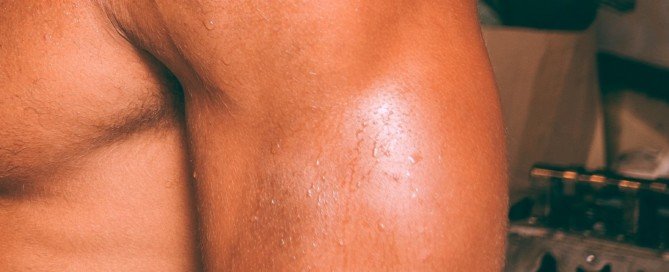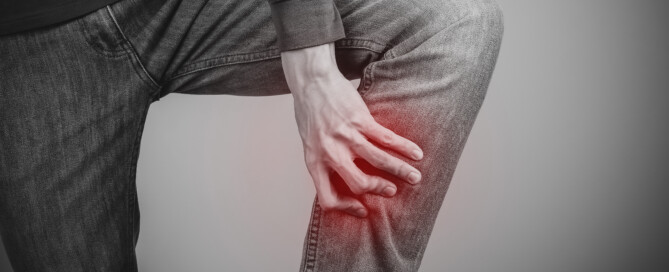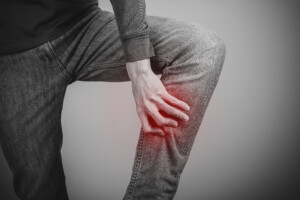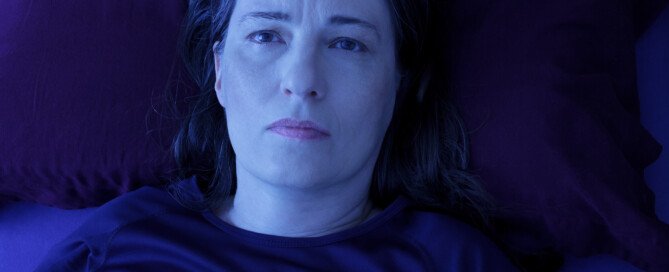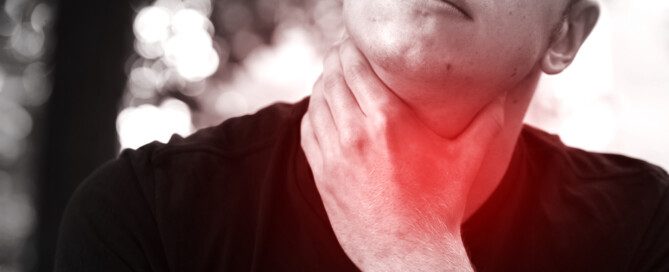Does Upper Arm Size Affect Blood Pressure Reading?
If you think that your big arm is affecting your blood pressure readings, you’re correct.
The size of your upper arm affects the blood pressure reading. (more…)
Can a DVT Come Back in Its Original Location?
If you’ve been treated for a deep vein thrombosis, is it possible that it could come back in its original location?
“Yes, if there is some residual blood clot in the vessel or irritation of the vessel wall that can cause new clot formation,” says Susan L. Besser, MD, with Mercy Medical Center, Baltimore; Diplomate, American Board of Obesity Medicine and board certified by the American Board of Family Medicine.
Symptoms of DVT
If a DVT comes back in its original location, this does not mean the symptoms will be the same as they were the first time around.
So don’t assume that just because there was redness and swelling the first time means there’d be redness and swelling if the DVT returned.
Unusual warmth in the suspected area is also a symptom, as is pain or a strong aching or cramping that doesn’t improve with rest.
However, about half of DVTs do not cause symptoms.
Risk Factors for DVT
Age. As one gets older, the risk heightens, but don’t let your guard down if you’re young with risk factors. Even kids can get a venous blood clot.
Bed rest, excessive. Bed rest of a prolonged nature, regardless of reason, means inactive lower legs which can cause the blood in the veins to pool and clump together.
Birth control pills. Oral contraceptives can thicken the blood.
Blood clot disorder. A person may not know they have this until a DVT forms, and even then, an inherited blood clot disorder is no guarantee you’ll eventually get a blood clot.
Cancer. Not only the disease, but treatment can increase risk of a DVT.
Crohn’s disease and ulcerative colitis.
Heart failure. In heart failure, the heart does not pump adequately.
Hormone replacement therapy. HRT can thicken the blood.
Injury. This can make the blood cells clump together.
Obesity or even overweight. Extra pounds put pressure on veins.
Personal or family history of DVT.
Pregnancy. Pregnancy increases pressure in the pelvic and leg veins. Those with an inherited clotting disorder are especially at risk. The risk from pregnancy can continue for up to six weeks after delivery.
Sitting for long periods of time. This includes prolonged computer work and truck driving without breaks.
Smoking.
Surgery. In particular, hip or knee replacement, and abdominal. The actual surgery itself can damage veins, and then the subsequent period of inactivity also raises the risk.
Even if you have just one known risk factor – that of a personal history of a DVT – it can still return in the exact spot as the original – and as mentioned, will not necessarily yield the same presentation as the first incident.
There is no data, however, on what percentage of people experience a deep vein thrombosis that comes back to its original location.
 Dr. Besser provides comprehensive family care, treating common and acute primary conditions like diabetes and hypertension. Her ongoing approach allows her the opportunity to provide accurate and critical diagnoses of more complex conditions and disorders.
Dr. Besser provides comprehensive family care, treating common and acute primary conditions like diabetes and hypertension. Her ongoing approach allows her the opportunity to provide accurate and critical diagnoses of more complex conditions and disorders.
 Lorra Garrick is a former personal trainer certified by the American Council on Exercise. At Bally Total Fitness she trained clients of all ages for fat loss, muscle building, fitness and improved health.
Lorra Garrick is a former personal trainer certified by the American Council on Exercise. At Bally Total Fitness she trained clients of all ages for fat loss, muscle building, fitness and improved health.
.
Top image: Shutterstock/Shaynepplstockphoto
Do Twitching Muscles Wake You Overnight? What to Do

Do you suddenly wake up in the middle of the night and realize that the cause is twitching muscles?
Big twitches in a major muscle group are most likely to snap someone out of a sleep. (more…)
Can a DVT Cause Pain without Swelling or Redness?

We always hear how a deep vein thrombosis (DVT) can cause pain, swelling and/or redness in the affected area, which is commonly the calf.
The blood clot may also form in the upper leg or behind the knee. (more…)
Stinky Sneezes: Causes and Solutions
Do your sneezes smell so bad that even YOU can’t stand them?
Are your sneezes so stinky that you do all you can to muffle them even if you’re the only one in the room? (more…)
Salivary Gland Infection vs. Salivary Gland Cancer Symptoms

There are distinct differences between the symptoms from a salivary gland infection and those from cancer.
First off, an infection of the salivary glands is far more common than is a malignancy. (more…)
Does Low Thyroid Cause a Lump Feeling in the Throat?

That lump feeling in your throat sometimes isn’t just a feeling; it could be cancer, acid reflux, anxiety and not so surprisingly, low or underactive thyroid.
“When the thyroid gland is not producing enough thyroid hormone, it is called hypothyroidism,” says Gene Liu, MD, MMM, President, Chair, Department of Surgery; Chief, Division of Otolaryngology, Cedars-Sinai Medical Group.
“Patients who are hypothyroid can have a feeling of a lump on the throat, or globus sensation about a third of the time, and is highly dependent on the reason for the hypothyroidism,” continues Dr. Liu.
“Many hypothyroid patients have underlying inflammation from autoimmune thyroid disease, post-viral episodes or other types of thyroiditis. And this inflammation in the neck can cause the globus sensation.”
How well your thyroid is functioning can be determined by a blood test. If you have an underactive thyroid gland, this does not always mean weight gain.
In fact, low thyroid can cause a menagerie of symptoms that most people would never associate with poor function of this so-called master gland.
Yes, it can cause some weight gain, but often, there is none. Instead, an affected individual might have a completely different batch of symptoms other than the ones that get the most media attention, which are weight gain, hair loss or thinning hair, feeling cold when nobody else does and fatigue.
Other Symptoms of Low Thyroid
• Constipation
• Depression (which may lead to appetite loss)
• Dry skin
• Hoarse voice
• Joint swelling
• Memory impairment
• Stiff aching muscles
Where does cancer (laryngeal and pharyngeal) rank as a possible cause for a lumpy sensation in the throat?
It’s way down there. Cancer that affects the throat is rare, even among those with the leading risk factor: smoking.
Anxiety so often causes a feeling of a lump that “lump in my throat” is part of the English vernacular when referring to anxiety or nervousness.
If low thyroid is making you feel that there is a lump in your throat, chances are very high that you have a few of the above symptoms.
Do not delay seeing a doctor. If untreated, this autoimmune disease can become life threatening.
 Dr. Liu’s clinical areas of focus cover a broad range including surgery of the head and neck, sinuses and thyroid, and disorders of the ears, salivary glands and vocal cords.
Dr. Liu’s clinical areas of focus cover a broad range including surgery of the head and neck, sinuses and thyroid, and disorders of the ears, salivary glands and vocal cords.
 Lorra Garrick has been covering medical, fitness and cybersecurity topics for many years, having written thousands of articles for print magazines and websites, including as a ghostwriter. She’s also a former ACE-certified personal trainer.
Lorra Garrick has been covering medical, fitness and cybersecurity topics for many years, having written thousands of articles for print magazines and websites, including as a ghostwriter. She’s also a former ACE-certified personal trainer.
.
Top image: Shutterstock/Mykola Samoilenko
Part of the Body Melanoma Most Often Grows in Dark Skin

There are certain parts of the body that melanoma is more likely to grow in blacks and other dark skinned individuals.
People with dark skin are not immune to melanoma, especially since this skin cancer has risk factors not related to sun exposure, the ability to tan or how much natural pigment a person has. (more…)
How Rare Is Melanoma in Dark Skinned Children?

Though melanoma is very rare in children, and rare in dark skinned adults, just how rare is it in a person who’s both dark and under age 20? (more…)
Causes of Barrett’s Esophagus Other than GERD

Barrett’s esophagus is a risk factor for esophageal cancer. GERD causes Barrett’s esophagus.
But what else might cause this precancerous condition?
“The lining (epithelium) of the esophagus is normally what is called a squamous epithelium, exactly like our skin,” says Alex Little, MD, a thoracic surgeon with a special interest in esophageal and lung cancer.
“Barrett’s esophagus is a condition in which the epithelium near the bottom of the esophagus is found to be glandular; it resembles cells found in glands,” explains Dr. Little.
“All these patients have GERD, and the understanding is that the acid that refluxes from the stomach injures the normal squamous epithelium — which is replaced by stem cells that migrate in and develop a columnar lining.
“There are no other known causes, although during fetal development columnar cells line the esophagus.
“They are usually replaced by squamous cells before birth, but occasionally ‘nests’ of columnar cells remain. This is not Barrett’s.”
About 10 percent of people with chronic gastroesophageal reflux disease will develop Barrett’s esophagus.
And most people with Barrett’s have a long history of GERD.
It’s not known why that small percentage of acid reflux sufferers eventually develop Barrett’s esophagus.
A study in Gastroenterology (2012) links smoking to Barrett’s, but the relationship is not clear.
There’s not enough evidence to date to show a strong correlation to smoking and this precancerous condition, let alone how the link occurs.
Type 2 diabetes and obesity have also been implicated as possible risk factors for Barrett’s, but again, the links are associative rather than causal.
 Alex Little, MD, trained in general and thoracic surgery at the Johns Hopkins University School of Medicine; has been active in national thoracic surgical societies as a speaker and participant, and served as president of the American College of Chest Physicians. He’s the author of “Cracking Chests: How Thoracic Surgery Got from Rocks to Sticks,” available on Amazon.
Alex Little, MD, trained in general and thoracic surgery at the Johns Hopkins University School of Medicine; has been active in national thoracic surgical societies as a speaker and participant, and served as president of the American College of Chest Physicians. He’s the author of “Cracking Chests: How Thoracic Surgery Got from Rocks to Sticks,” available on Amazon.
 Lorra Garrick has been covering medical, fitness and cybersecurity topics for many years, having written thousands of articles for print magazines and websites, including as a ghostwriter. She’s also a former ACE-certified personal trainer.
Lorra Garrick has been covering medical, fitness and cybersecurity topics for many years, having written thousands of articles for print magazines and websites, including as a ghostwriter. She’s also a former ACE-certified personal trainer.
.

